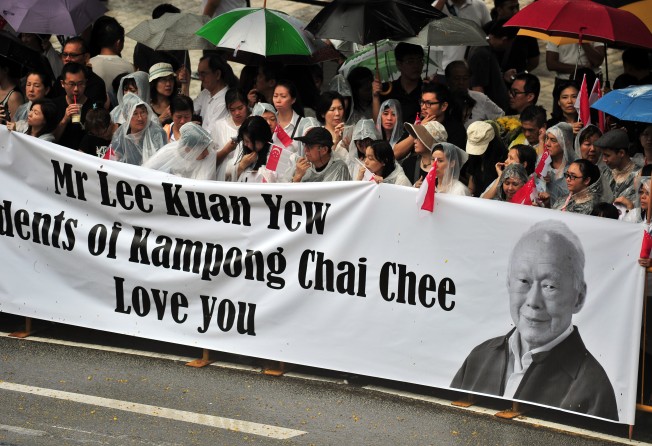Lee Kuan Yew’s heirs need to keep Singapore together in future

Lee Kuan-Yew is widely acclaimed for his accomplishments. Even though critics have resisted his brand of “Asian authoritarian capitalism” as a suitable model of development, they concede it was hugely successful in turning Singapore from an impoverished city into one of the world’s most prosperous, equitable, and corruption-free nations.
Lee had three defining moments. First, after being sworn in as Prime Minister in 1959, he harnessed socialist sentiments to implement a government public housing program that laid the foundations for an equitable society and a market economy. This made it politically acceptable to respect the rule of law and protect private property rights, albeit not as vigorously as Hong Kong.
Second, after Singapore was expelled from the Malaysian Federation in 1965, he successfully dealt with the daunting task of building a nation state in a multi-ethnic society, in a city without a hinterland and surrounded by potentially hostile neighbours.
And third, on a visit to Harvard in 1967, he argued that the independence and prosperity of his country depended on the fortitude, unity and resolve of the United States. Lee saw the need at that time for US leadership to supplement and create a framework for order in the world.
His focus on the global picture was driven by the fact he had few other options, but it also established him as an international statesman. Singapore’s domestic economy is very small and needs to maintain international trade, foreign investment, and migration flows in order to prosper.
But keeping the economy maximally open, as in the case of Hong Kong, also exposes the domestic economy to foreign competition and the vagaries of global business cycles that inevitably spill over into political risks.
Lee had to craft a state that could withstand these tensions. In theory he had two options. He could take the democratic path, which would have incompatibilities with global economic integration and national sovereignty – the “trilemma of the world economy” as described by Harvard professor Danny Rodrick – or he could choose an authoritarian path.
In opting for the latter, Lee was acutely aware of the risks involved and worked very hard to mitigate them.
One risk was corruption, so government officers were paid well to reduce the temptation of bribes. This also enabled the party, which controlled all appointments, to recruit the most talented and ideologically agreeable members into its ranks.
The opposition, meanwhile, was marginalized by using the full force of the law to prosecute targeted opposition leaders. This also doubled up as a device to discourage rebellion from among the ranks of insiders.
Nominally democratic institutions, such as the legislature, opposition parties, elections, and open recruitment of certain officials, provided avenues for criticisms to emerge and for the ruling party to receive feedback on its performance.
Lee of course realised these political and bureaucratic arrangements could only buy time. Ultimately, his brand of Asian authoritarian capitalism had to deliver economic prosperity, social equity, and justice.
On economic prosperity, he protected private property rights and introduced simple tax regimes, minimal regulation, and free market competition. While Singapore is not exactly a free-market bastion like Hong Kong, it is close enough.
On social equity, the government housing programme has made it affordable for over 80 per cent of eligible Singaporean households to own their own housing units, which they can sell on the open market to any resident. This arrangement also gives them an equal stake in the nation’s rising prosperity and fosters a common identity.
In Hong Kong, in contrast, 47 per cent of households live in government-subsidized housing and only 16 per cent are subsidized owner occupants.
Finally, the rule of law has been rigorously upheld. This assures ordinary citizens of day-to-day justice, even though some political areas are off limits.
In my view, Lee’s greatest challenge and greatest accomplishment was to create a state that kept its people together as a nation. This was his fundamental axiom – his categorical imperative. His heirs will have to guard it.
Singapore after Lee Kuan Yew will tread the fine line between its founder’s vision and the rising aspirations of an educated, prosperous citizenry eager for individual and collective expression. The rich and talented can choose to exit. But for the nation-state to thrive, it must keep its people together.
Keeping 1.3 billion people together is not China’s challenge because such numbers cannot be accommodated anywhere else, but state building is. It is also not Hong Kong’s challenge because our city is not a nation-state, but only a capitalist territory according to the law.